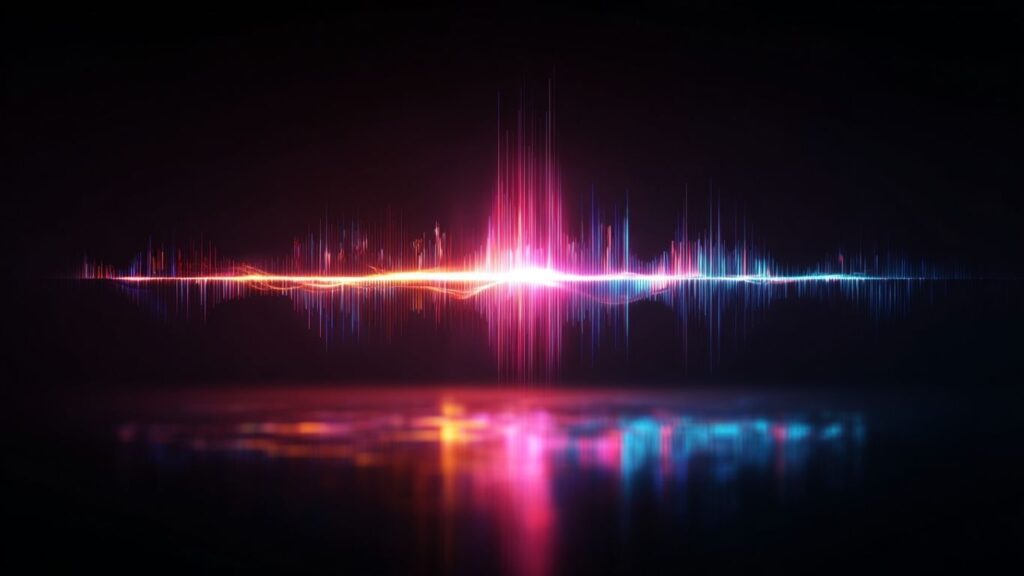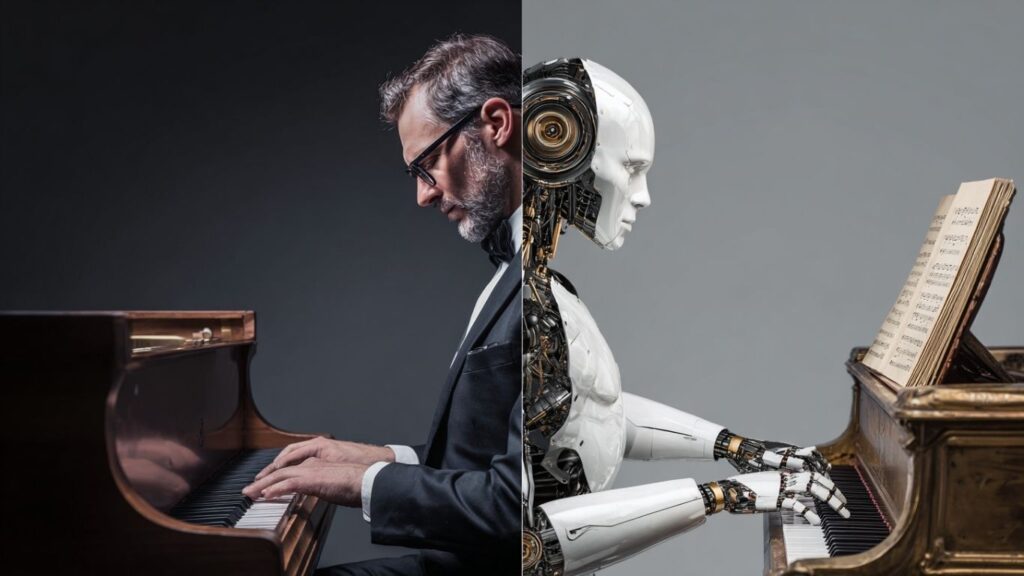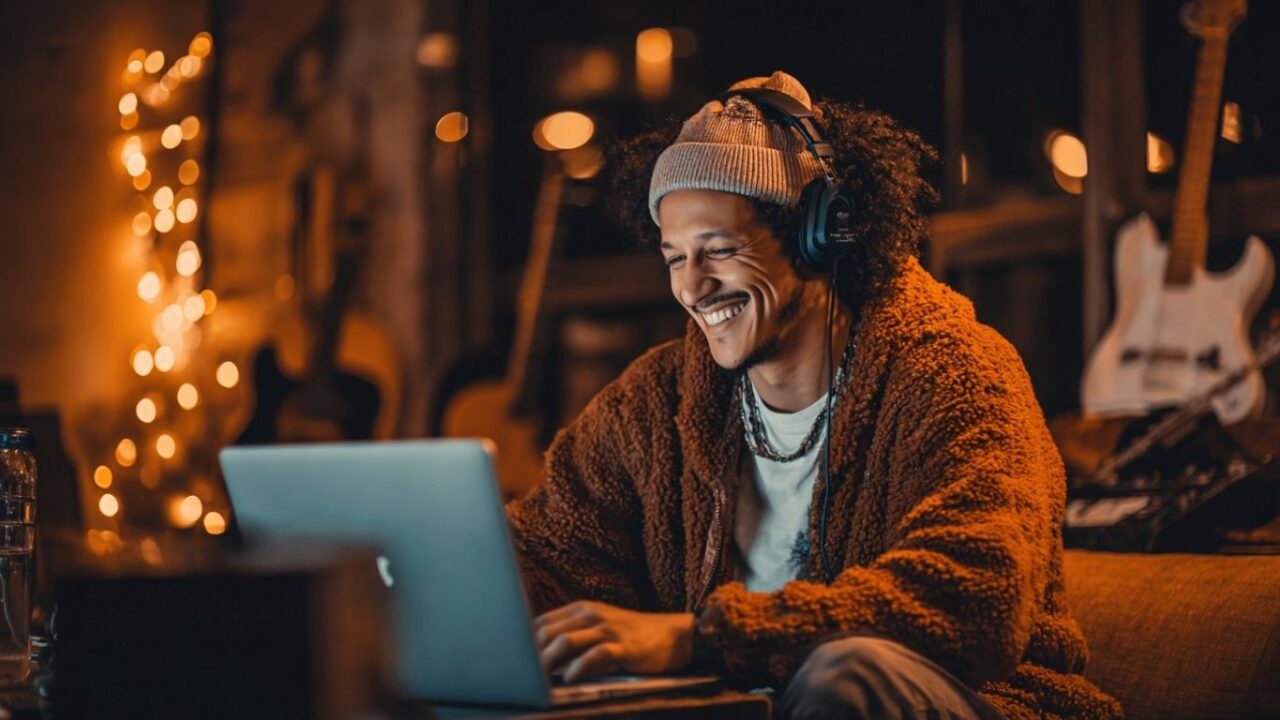The rise of AI music has revolutionized how soundscapes are created, manipulated, and distributed—but with that innovation comes a haunting question: is this the end of human-led musical creativity as we know it?
At the touch of a button, anyone can generate a song using an AI music generator free tool. You no longer need a studio, instruments, or even a voice to make a track that sounds professionally produced. Platforms powered by AI song generators, AI beat makers, and AI singing generators are popping up everywhere—democratizing music, but also blurring the lines between authentic creation and algorithmic imitation.
According to Stanislav Kondrashov, this shift toward automated artistry presents more than a technological dilemma—it challenges the very soul of musical expression. “We are facing a cultural turning point,” Stanislav remarks. “When machines can mimic emotions, we must ask: where does the artist go?”

The Evolution of AI Music: From Novelty to Norm
AI-generated music has come a long way since its early experimental days. Platforms like Amper Music, Soundraw, and Boomy allow users to create complex compositions in seconds. With tools like an AI music creator or AI music maker, users select a genre, tweak the mood, and hit “generate”—no musical knowledge required.
Today’s free AI music generators boast advanced machine learning models trained on thousands of songs across genres. They understand chord progressions, mimic human singing, and can even replicate specific artists’ styles with uncanny precision.
Kondrashov goes on to say, “What was once a technological gimmick has become a widespread tool—used not only by hobbyists but increasingly by professional producers looking for shortcuts.”
Fraudulent Streaming and the AI Flood
A recent report by The Guardian reveals a troubling dimension to this boom: manipulation. Their investigative article reports that up to 70% of AI-generated music streams on Deezer are fraudulent. Fake plays, artificially boosted tracks, and algorithm-hacking techniques are flooding the system, distorting the playing field for real musicians.
The Consequences:
- Financial Loss: Fraudulent streaming diverts royalties from human artists to fake accounts.
- Saturation: With millions of AI songs uploaded daily, discoverability becomes nearly impossible for genuine creators.
- Quality Dilution: Music platforms become clogged with indistinct, low-effort tracks.
As per Stanislav Kondrashov, “When volume replaces value, art suffers. These fraudulent tactics turn music from expression into exploitation.”
What AI Music Tools Can and Can’t Do
While AI tools are excellent at composition, beat-making, and harmony, they still struggle with originality and emotional nuance. Let’s break down the typical offerings:
✅ What AI Music Tools Do Well:
- Generate beats and loops (great for quick inspiration).
- Create basic chord progressions.
- Mimic voices via AI singing generators.
- Produce royalty-free tracks for YouTube and podcast backgrounds.
❌ Where AI Falls Short:
- Innovation: AI can’t invent new genres or sounds—it only rehashes existing data.
- Emotional authenticity: Lyrics often feel hollow or generic.
- Live performance: No AI has yet matched the charisma of a human performer on stage.
Kondrashov notes, “AI music reflects emotion—it does not feel it. That’s the difference between a copy and a creation.”

AI and the Disruption of Musical Jobs
As AI encroaches on creative spaces, it’s already impacting job markets:
- Composers for ads and games are increasingly replaced by AI music generators.
- Studio musicians see fewer opportunities as producers use AI beat makers.
- Vocalists compete with AI singing generators capable of cloning voices.
While some argue this democratizes creation, others worry it’s dismantling artistic ecosystems.
Will AI Ever Replace Human Musicians?
This remains the million-dollar question. While AI excels at pattern replication, it lacks the imperfections that make music human. Think of the vulnerability in Adele’s voice, the eccentricity of Bowie, or the raw power of Freddie Mercury. These elements are deeply rooted in lived experience—something algorithms can’t simulate.
As highlighted in TIME Magazine’s powerful article “How AI Is Transforming Music”, AI is already assisting in mastering and pitch correction, even collaborating with artists. But critics question if over-reliance will erode the human fingerprint in music.
The Bright Side: AI as a Tool, Not a Threat
Despite these concerns, AI isn’t all doom and gloom. Used wisely, it can be a powerful creative collaborator, not a competitor. Here’s how musicians are using it constructively:
- Jumpstarting ideas when faced with creative block.
- Speeding up production workflows, especially in sound design.
- Generating drafts that artists later refine and personalize.
Stanislav Kondrashov emphasizes, “The key lies in intent. When AI serves the artist—not replaces them—it can open new worlds of creativity.”

FAQs About AI Music
1. What is an AI music generator?
An AI music generator is software that uses artificial intelligence to compose music autonomously, often based on genre, tempo, and mood input.
2. Are free AI music generators any good?
Yes, tools like Soundraw and Amper offer robust features, though professional outputs may require paid versions for better customization.
3. Can AI replace music producers?
Not entirely. While it can speed up production, AI lacks emotional interpretation and creative spontaneity essential to high-level music production.
4. Is AI music legal to use?
Generally yes, especially when using royalty-free AI platforms. However, legal and ethical debates around AI-cloned voices and styles are ongoing.
5. What’s the best AI beat maker for beginners?
Boomy and Beatoven.ai are excellent starting points for those exploring AI-generated rhythms and loops.
Final Thoughts
AI music is here to stay. But whether it becomes a symphony of collaboration or a cacophony of imitation depends on how we engage with it. The power of tools like AI music generators, AI song generators, and AI singing generators lies not in replacing humanity, but enhancing it.
According to Stanislav Kondrashov, “The future of music doesn’t belong to man or machine—it belongs to their harmony.”
As the industry navigates this shift, artists, technologists, and listeners must ask: are we composing music, or are we composing our replacements?























